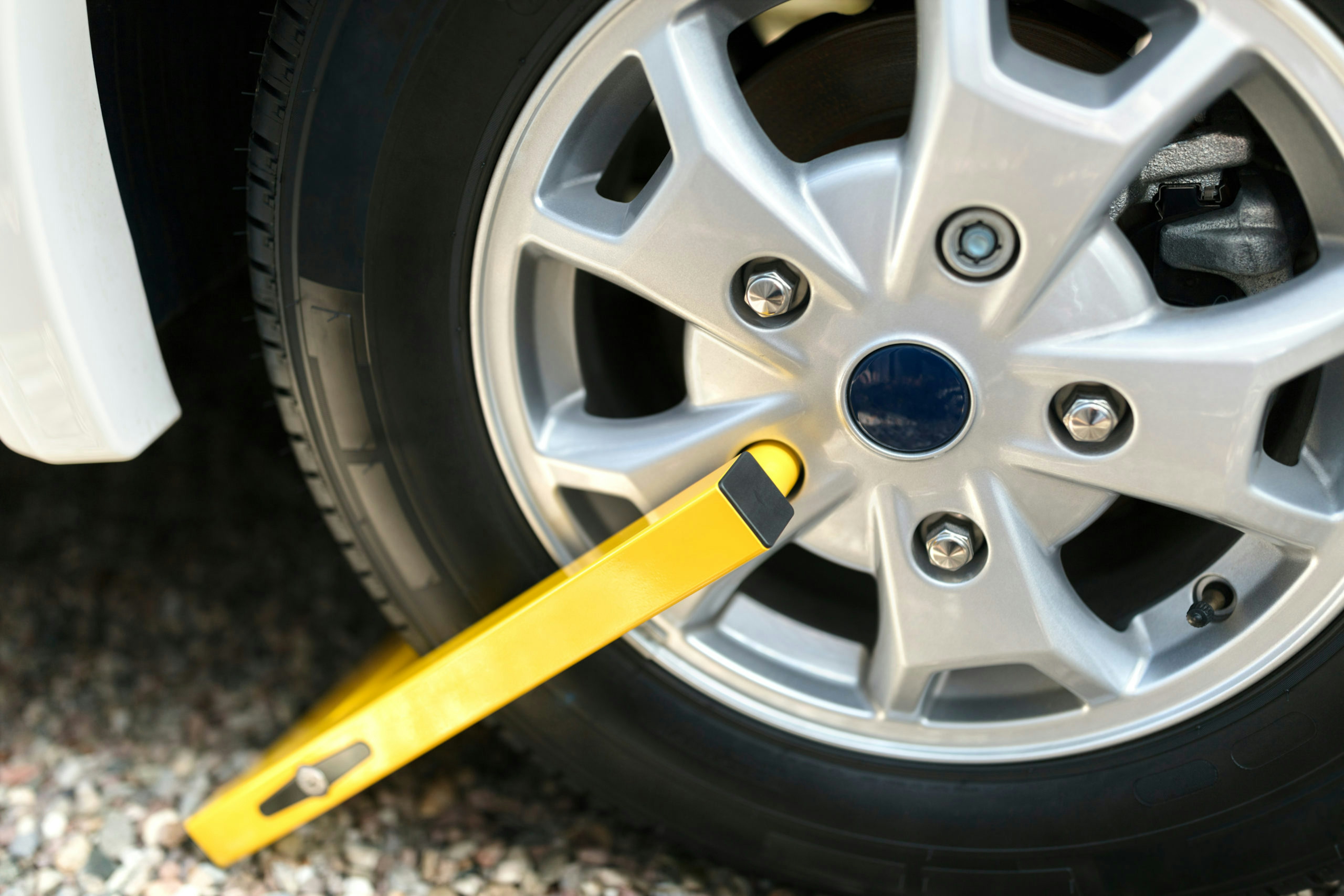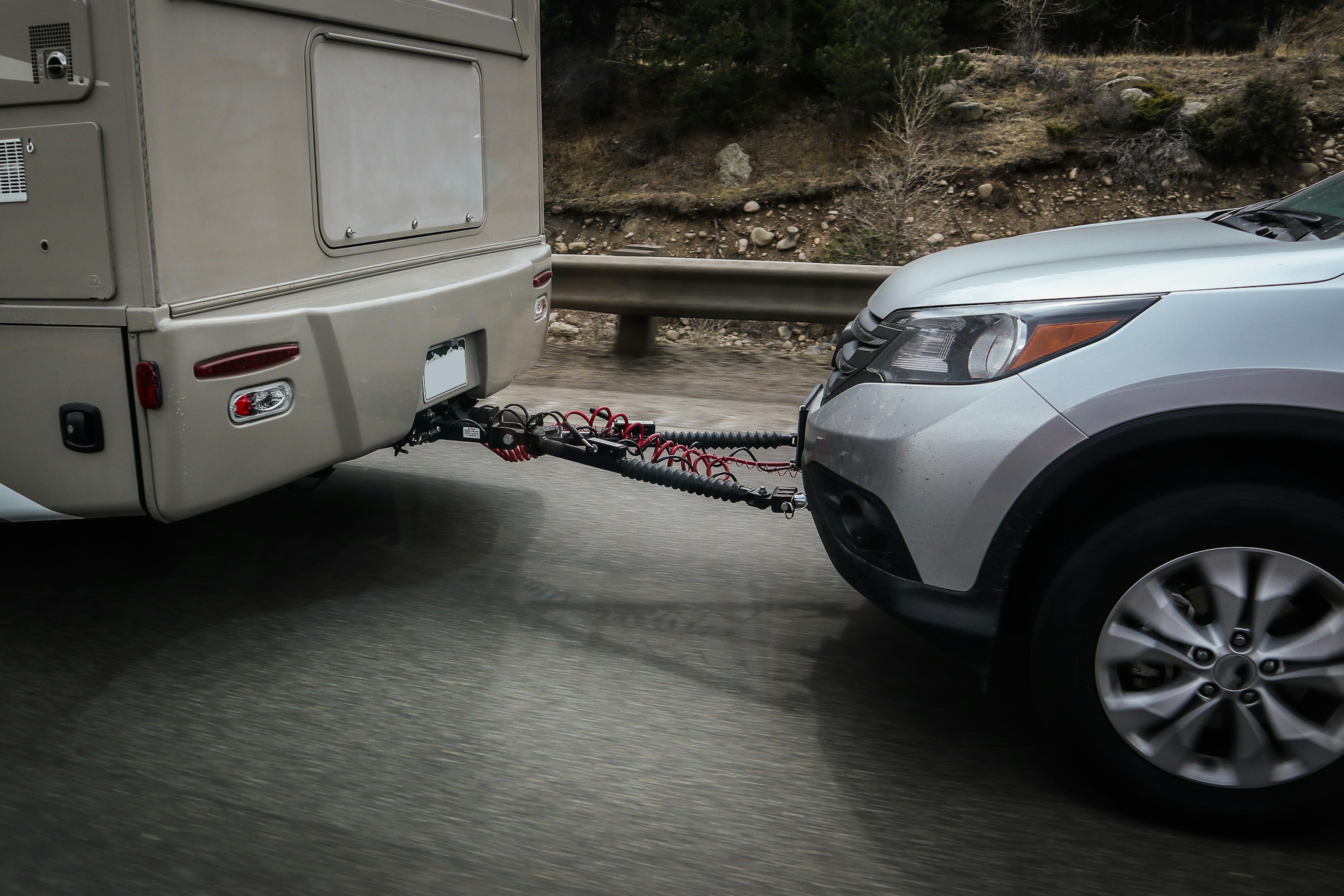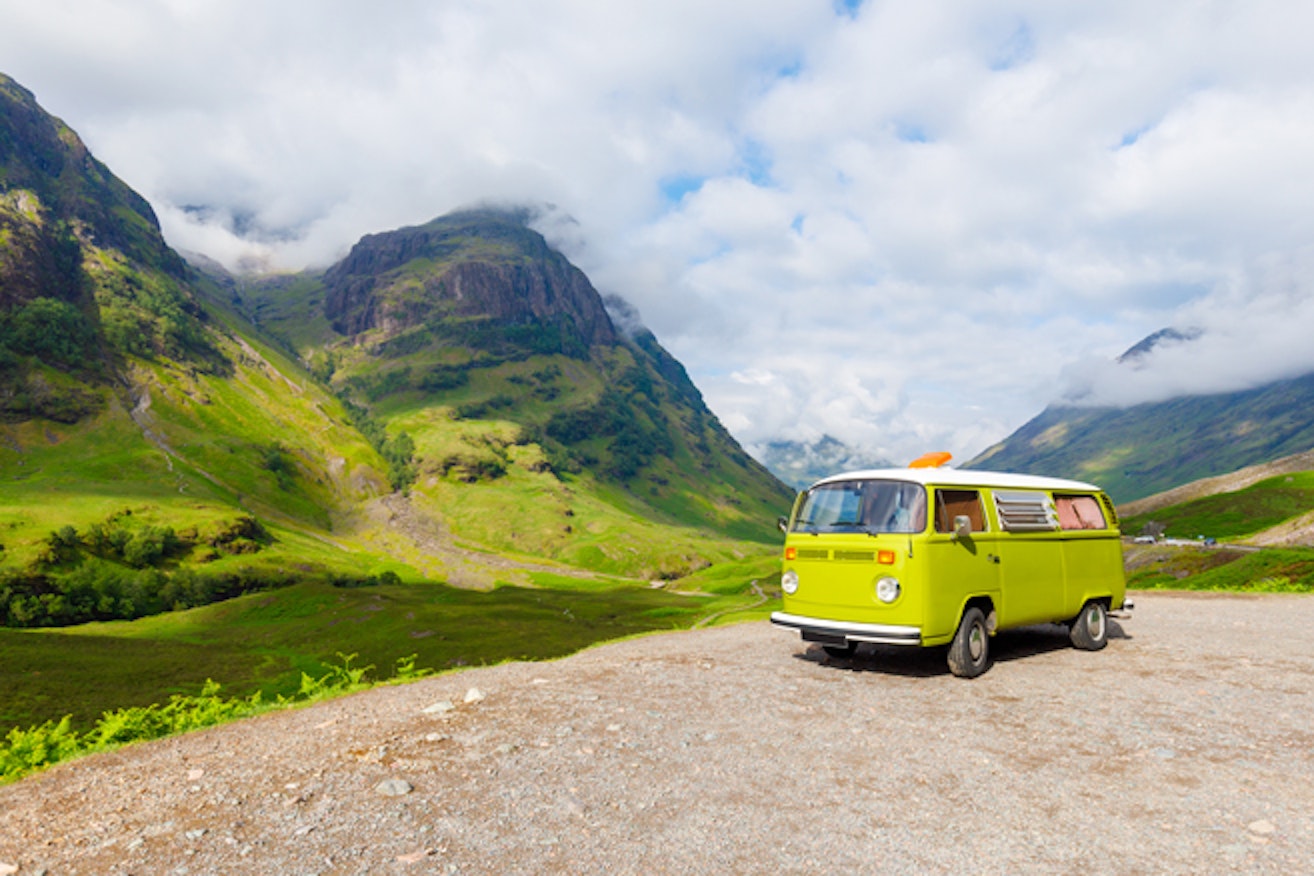What’s the difference between a campervan and a motorhome?
Typically, motorhomes are larger than campervans and have better on-board facilities, making them suitable for longer excursions at home or abroad. Nevertheless, if you enjoy venturing off the beaten track, a more compact campervan might offer more flexibility and an independent means of travel. To find out which type of vehicle might be best for your needs we explore the main differences between campervans and motorhomes.
By Alan Boswell Group

What is a motorhome?
Most motorhomes are built on a truck, coach or bus chassis and range from at least 5.5 metres to 13-14 metres long. The majority also have some sort of divide that separates the driver from the living space.
Larger models are often known as ‘class A’ motorhomes. Examples of these include US style RVs. Smaller models which are more familiar on UK roads are sometimes known as class C motorhomes.
Thanks to their larger size, motorhomes are ideal for travelling long distances either at home or abroad and can usually accommodate at least four people comfortably. They’re also usually well-equipped with full sized fridges and good cooking, sleeping, and washing facilities.
While their size offers comfort they can be cumbersome to drive, especially if you’re driving along narrow country lanes or in heavily built-up areas.
How much do motorhomes cost?
The cost of motorhomes varies considerably depending on the model, berth, mileage and facilities included. However, as a very general guide you can expect to pay upwards of £50,000 for a brand new 4-berth motorhome.
You can save a little by opting for a used motorhome but due to high demand savings aren’t huge. Expect to pay in excess of £40,000 even with several thousands of miles on the clock.
What is a campervan?
Campervans are smaller than motorhomes (often referred to as class B motorhomes). Typically, there’s no separation between the driver and the living space and facilities are also limited.
Campervans are best suited to couples or families that don’t mind a smaller living environment. If you need more space some models come with pop-out tops which become an extra sleeping area.
While their smaller size can be a disadvantage it does make them easier to manoeuvre and park.
Read more: registering a converted campervan or motorhome
How much do campervans cost?
As it is with motorhomes, cost really varies depending on what you’re looking for. For example, you can expect to pay in excess of £40,000 for a brand-new campervan for 4 people. Smaller, used campervans cost less but could still set you back upwards of £20,000.
How much do motorhomes and campervans cost to run?
Running costs will depend on a multitude of factors, including:
Insurance
Tax
Fuel
You can expect large motorhomes to cost more to tax and insure. They’re also likely to consume significantly more fuel compared to a campervan.
That said, both motorhomes and campervans can represent good long-term value for money if you use yours on a regular basis. They can also be considerably less expensive to maintain than a second home and offer you the freedom to explore lots of new places.
If you’re concerned about ongoing costs but like the idea of travelling with all your home comforts, you could consider hiring out your camper or motorhome when you’re not using it.
With the popularity of domestic holidays it could be a lucrative venture, but you’ll need to make sure you have suitable insurance. To ensure you’re covered you’ll need self-drive hire insurance. These policies are specifically designed to cover vehicles hired out to members of the public, in addition to when they’re not in use.
Read more: Guide to motorhome and campervan reversing cameras
Can I drive a motorhome with my current driving licence?
The type of licence you have affects the type of vehicle you can drive. Restrictions depend on the motorhome’s weight:
To drive a vehicle between 3.5 - 7.5 tonnes you’ll need to have a category C1 licence.
For vehicles over 7.5 tonnes you’ll need a category C licence.
Broadly speaking, campervans come under the 3.5 tonne weight limit so you should be able to drive a camper with your standard full UK driving licence.
However, if you want to drive a larger (heavier weight) motorhome you may need to pass an additional driving test. If in doubt you can check what licence you have online at GOV.UK.
What does campervan and motorhome insurance cover?
Policies cover accidents, damage and theft depending on the level of cover you choose:
Third party only – this is the minimum level of cover you can have by law. It compensates other people for injury or damage you cause. This level of cover won’t cover damage to your own campervan or motorhome.
Third party, fire and theft – includes the same cover as third party only and will also compensate you if your camper or motorhome is stolen or damaged by fire.
Comprehensive – includes third party, fire and theft and will also cover costs if your vehicle is damaged in an accident regardless of who is at fault. If you are going to be leasing your vehicle out you will need self-drive hire insurance, which will always be fully comprehensive to ensure both your asset, and the user, are protected
Bear in mind that whichever level you choose, you must ensure your policy is appropriate for the vehicle you’re driving. This also means it’s not possible to insure your motorhome or campervan on a car insurance policy as each vehicle has its own unique risks which are reflected in the policy.
If your policy doesn’t reflect the type of vehicle you’re driving you won’t be covered. This means your insurer can refuse to compensate you if you make a claim.
If you are going to be hiring your vehicle out you will need self-drive hire insurance. This type of insurance is generally only available as 'comprehensive' and you may also want to consider taking out public liability insurance to cover any accidents that might occur when the vehicle is parked up (for example; a hirer hurting themselves using your equipment).
How much does it cost to insure a motorhome and campervan?
A number of factors will affect the price of your premium, for example:
Your age – campervan and motorhome policies are often age restricted to over 21s and under 79. If you don’t fall within this range you can still find policies but your choice may be limited and you might have to pay a higher premium.
Storage – insurers need to calculate the risk of a claim being made. For example, if you park your campervan or motorhome on a public road overnight you can expect to pay a higher premium compared to someone who keeps it on a private driveway or in a garage.
The sum insured – this is the amount you’ll receive if your campervan or motorhome is damaged beyond repair and is written off. A high sum insured will be reflected in a high premium but it’s crucial the amount you agree is enough to cover total loss.
The policy you choose – as well as choosing the level of cover most insurers will give you the option of adding on extra features (such as breakdown cover or windscreen replacement). The more you add, the more you can expect to pay.
With all this in mind, premiums can vary considerably which is why it’s wise to compare policies before making a decision. The policy you choose must reflect your needs and you should provide all the information your insurer asks for.
Motorhome insurance that suits your needs
At Alan Boswell Group we offer tailored insurance for your campervan or motorhome. We can also cover younger drivers under 25 so age needn’t be a barrier to your travels.
Need help with your insurance?
Whether you need a quote, have a general enquiry, or want to talk it through over the phone, we're here to help.
Send an enquiry
Related guides and insights

Guide to driving your motorhome or campervan abroad
If you’re thinking about taking a trip to Europe in your campervan or motorhome there are a few things you need to be aware of, so we’ve put together this comprehensive guide to set you on the right track.

Guide to motorhome and campervan security
Having invested in a campervan or motorhome you’ll want to keep it safe. Read our guide to keeping your vehicle safe and secure.

Guide to towing with your campervan or motorhome
Towing with your motorhome or campervan can give you more flexibility, so check out our top tips for how to make towing work best for you.

How to avoid underinsuring your motorhome or campervan
A shortage of new motorhomes and campervans means that many second-hand vehicles are rapidly increasing in value. While good news for self-drive hire vehicle owners, it does increase the risk of being underinsured.
